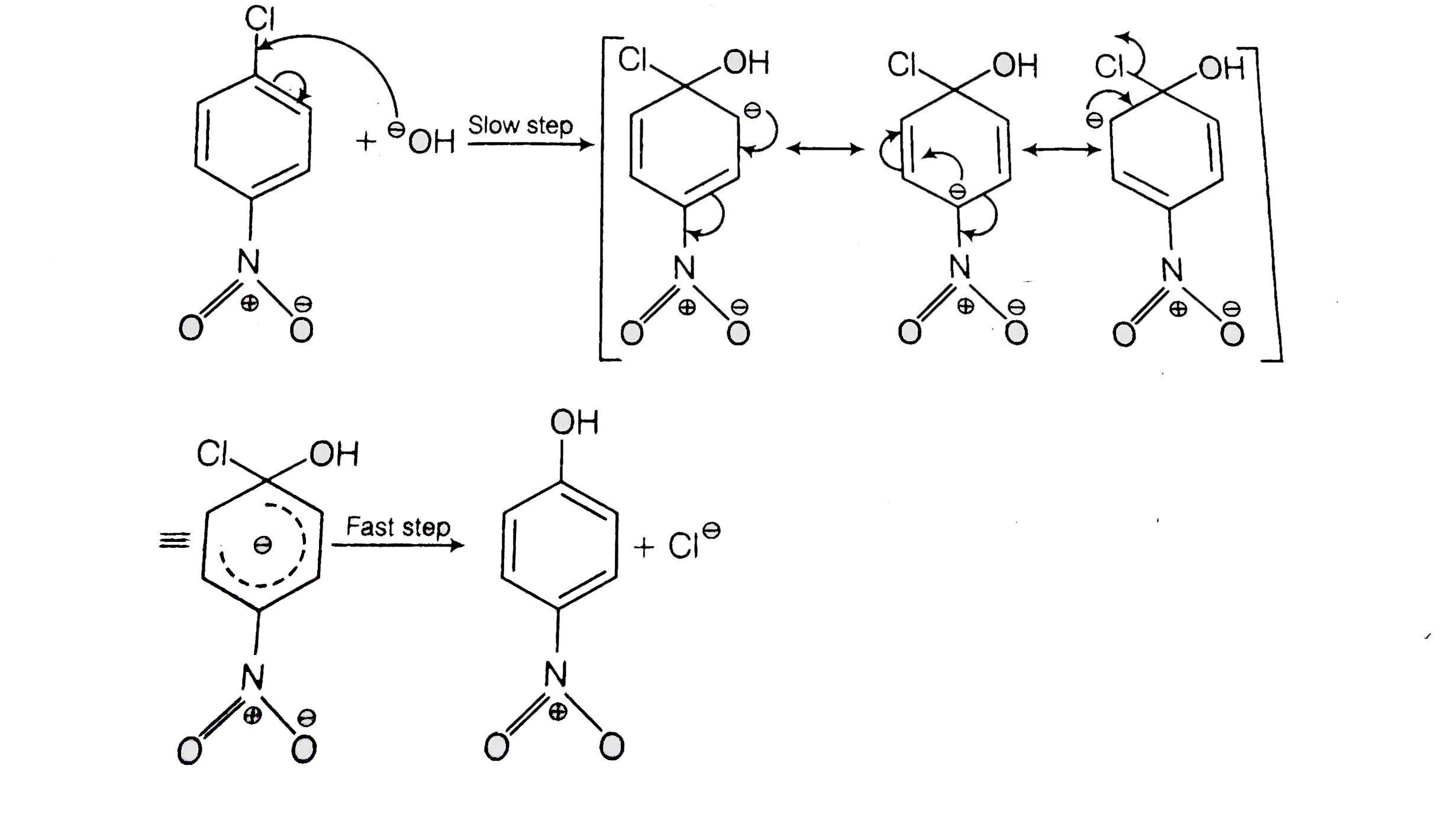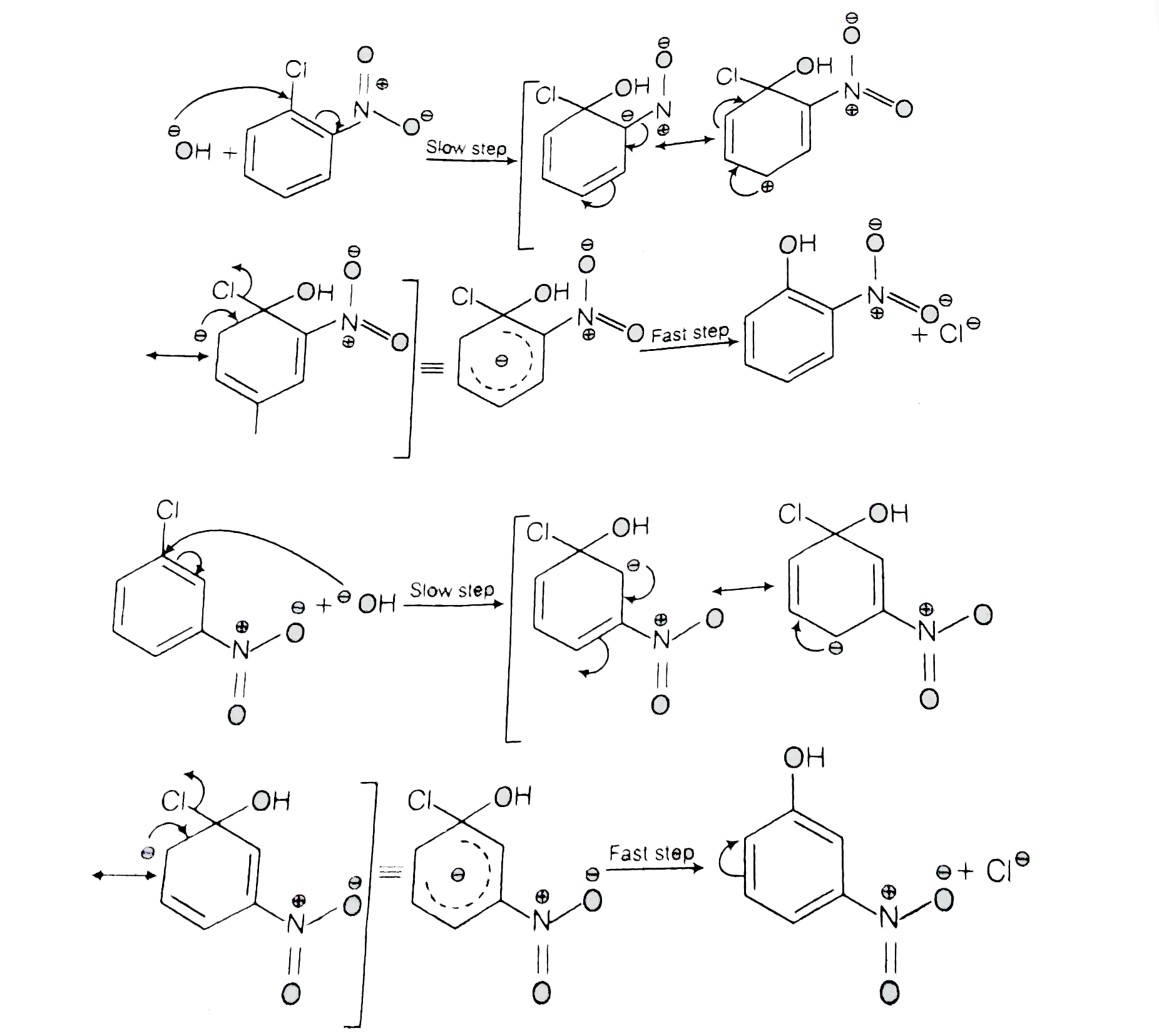Why are aryl halides less reactive towards nucleophilic substitution reactions than alkyl halides? How can we enhance the reactivity of aryl halides?
Text Solution
Aryl halides are less reactive towards nucleophilic substitution reaction due to the following reasons
() In haloarenes the lone pair of electron on halogen are in resonance with benzene ring So, C-Clbond acquires partial double bond character which strengthen C-Cl bond Therefore, they are less reactive towords nucleophilic substitution reaction.

(i) In haloarenes, the carbon atom attached to halogen is sp2 hybridised. The sp2 hybridised carbon is more electronegative than sp3 hybridised carbon. This sp2-hybridised carbon in haloarenes can hold the electron pair of C-X bond more tightly and make this C-CI bond shorter than C-Cl bond of haloalkanes
Since, it is difficult to break a shorter bond than a longer bond, therefore, haloarenes are less reactive than haloarenes
In haloarenes, the phenyl cation will not be stabilised by resonance therefore SN1 mechanism ruled out
(iv) Because of the repulsion between the nucleaphile and electron rich arenes, aryl halides are less reactive than alkyl halides
The reactivity of aryl halides can be increased by the presence of an electron withdrawing group (−(NO2) at ortho and para positions. However, no effect on reactivity of haloarenes is observed by the presence of electron withdrawing group at meta-position. Mechanism of the reaction is as depicted with −OH ion.


From the above resonance, it is very clear that electron density is rich at orto and para positions. So, presence of EWG will fascilitate nucleophilic at ortho and para positions not on meta position.
|
Topper's Solved these Questions
- HALOALKANES AND HALOARENESBOOK - NCERT EXEMPLAR ENGLISHCHAPTER - HALOALKANES AND HALOARENESEXERCISE - Assertion & Reason
10 Videos
- GENERAL PRINCIPLE AND PROCESSES OF ISOLATION OF ELEMENTS BOOK - NCERT EXEMPLAR ENGLISHCHAPTER - GENERAL PRINCIPLE AND PROCESSES OF ISOLATION OF ELEMENTS EXERCISE - Long Answer Type Questions
1 Videos
- P-BLOCK ELEMENTSBOOK - NCERT EXEMPLAR ENGLISHCHAPTER - P-BLOCK ELEMENTSEXERCISE - Long Answer Type Questions
3 Videos
Similar Questions
Knowledge Check
Aryl halides are less reactive towards nucleophilic substitution reaction as compared to alkyl halides due to
Athe formation of satable carbonimionBreasonance stabliziationClonger carbon halogen bondDsp2 hybridised carbon attached to halogenAryl halids are less reactive rtowards nucleophilic substitution reactions than alkyl halides due to :
Aformation of less stable carbocationBresonance stabilisationClonger carbon-halogen bondDsp2 hybridised carbon attached to halogen.Aryl halides are less reactive towards nucleophilic substitution because
ALess stable carbonium ionBDue to largeC−CI bond energyCInductive effectDResonance stabilization and sp2-hybridisation of C attached to halide .
Aryl halides are less reactive towards nucleophilic substitution reaction as compared to alkyl halides due to
View SolutionAryl halides are less reactive towards nucleophilic substitution reaction as compared to alkyl halides due to
View SolutionAryl halides are less reactive towards nucleophilic substitution reaction as compared to alkyl halides due to
View SolutionAryl halides are less reactive towards nucleophilic substitution reaction as compared to alyl halides due to
View SolutionAryl halides are less reactive towards nucleophilic substitution reaction as compared to alkyl halides due to
View Solution
